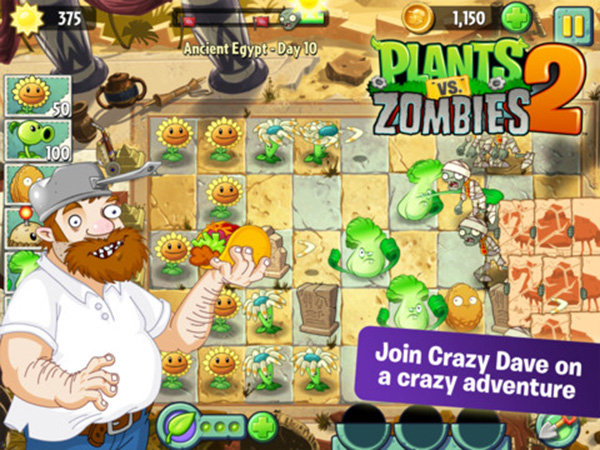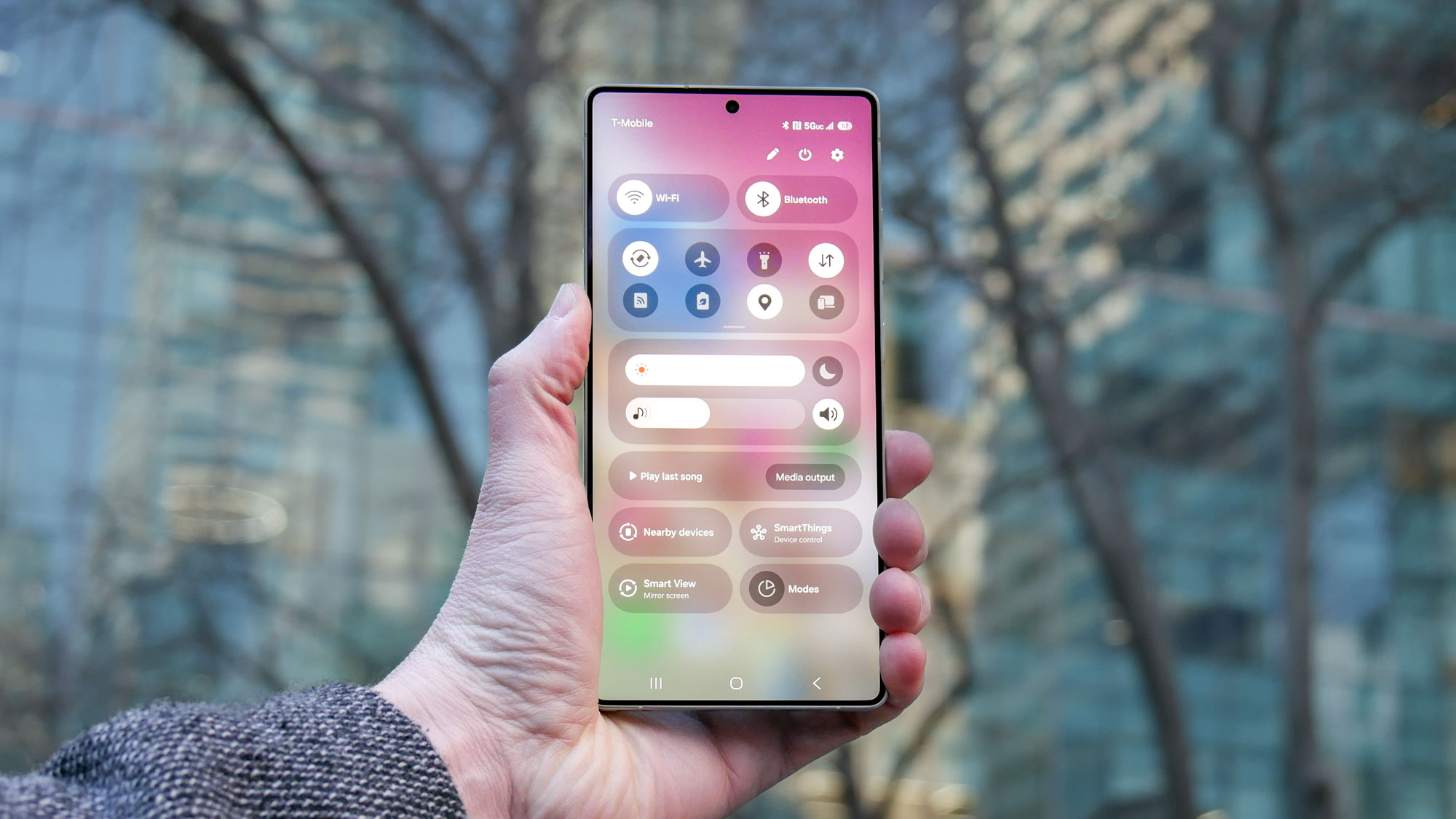EA Claims Apple Paid Money for Delay of PvZ 2 Android
Apple denies that it paid any cash for Plants vs. Zombies 2 exclusivity.
Here at Tom’s Guide our expert editors are committed to bringing you the best news, reviews and guides to help you stay informed and ahead of the curve!
You are now subscribed
Your newsletter sign-up was successful
Want to add more newsletters?

Daily (Mon-Sun)
Tom's Guide Daily
Sign up to get the latest updates on all of your favorite content! From cutting-edge tech news and the hottest streaming buzz to unbeatable deals on the best products and in-depth reviews, we’ve got you covered.

Weekly on Thursday
Tom's AI Guide
Be AI savvy with your weekly newsletter summing up all the biggest AI news you need to know. Plus, analysis from our AI editor and tips on how to use the latest AI tools!

Weekly on Friday
Tom's iGuide
Unlock the vast world of Apple news straight to your inbox. With coverage on everything from exciting product launches to essential software updates, this is your go-to source for the latest updates on all the best Apple content.

Weekly on Monday
Tom's Streaming Guide
Our weekly newsletter is expertly crafted to immerse you in the world of streaming. Stay updated on the latest releases and our top recommendations across your favorite streaming platforms.
Join the club
Get full access to premium articles, exclusive features and a growing list of member rewards.

A comment made by an EA executive has sparked controversy about whether or not there's was a secret deal to keep Plants vs. Zombies 2 away from Android.
Releasing apps on Apple's iOS first is certainly not unheard of, especially given that developers only have specific hardware sets – iPhone 5, iPhone 5S, iPad 3, iPad 4 and so on – to target. Android is similar to the Windows platform in that one operating system covers a plethora of hardware configurations. Thus launching an Android app behind the iOS version is both understandable and expected in some cases.
In the case on Plants Vs. Zombies, PopCap Games launched the now highly-popular title on Windows and OS X first in May 2009, Apple's mobile iOS platform in February 2010, and various consoles between September 2010 and May 2011. The game didn't arrive on Android until May 31, 2011 as an Amazon AppStore exclusive, followed by the Google Play release on December 14, 2011.
MORE: Plants vs. Zombies 2: It's About Time Review (iOS)
For Plants vs. Zombies 2: It's About Time, Electronic Arts released the highly-anticipated game for iOS on August 15, 2013. The Android version was presumably following the same development schedule as the first installment, but the Plants vs. Zombies sequel for Android has already launched in China, reportedly outselling the iPhone version six-to-one in that market. As it stands now, the North American release is merely listed as Fall 2013.
So what gives? Why the delay? EA Labels head Frank Gibeau claims that Apple supposedly paid the publisher to postpone the Android release in territories outside China.
"Apple gave us a truckload of money to delay the Android version [of Plants vs. Zombies 2]," Gibeau supposedly said during an internal town hall meeting held for Electronic Arts. He didn't elaborate on the "truckload" description, but that clearly indicates the publisher received more than a pat on the back and an iTunes gift card.
Get instant access to breaking news, the hottest reviews, great deals and helpful tips.
Naturally, Apple is denying the claims, telling source author Giant Bomb that the comments are "not true," that no money was exchanged. The company also refused to disclose information about its relationships with publishers when asked about a possible iOS exclusivity agreement. Plants vs. Zombies developer PopCap Games even added that it doesn't comment on internal meetings.
Exclusivity deals are common practice in the games industry, as the original Plants vs. Zombies release for Android shows. Not only did the app gain prominent placing on Amazon's new Android storefront, but spearheaded the company's new Free App of the Day campaign. PopCap obviously didn't generate revenue each time the game was downloaded, but the move paid off big time in advertising.
In the case of Apple, there's speculation that EA likely struck a deal that had the sequel landing prominent placement on the App Store in exchange for launching on iOS first. Yet given the importance of this release, the sequel would have landed proper advertising anyway. We already know that Apple is determined to undercut the Android platform any way possible, so paying EA for exclusivity wouldn't be surprising – just look at the great lengths the company took to undercut Amazon in the ebook market.
MacRumors points out that if Apple did indeed pay EA for exclusivity, this would be the first known reported case of Apple making payments to developers outside the App Store 70/30 envelope, and a sign that the fruity company is taking a more console-like approach with developers. Garter reports that games make up nearly two-thirds of Apple's App Store sales whether it's outright app purchases or in-game payments.
Follow us @tomsguide, on Facebook and on Google+.
Kevin started taking PCs apart in the 90s when Quake was on the way and his PC lacked the required components. Since then, he’s loved all things PC-related and cool gadgets ranging from the New Nintendo 3DS to Android tablets. He is currently a contributor at Digital Trends, writing about everything from computers to how-to content on Windows and Macs to reviews of the latest laptops from HP, Dell, Lenovo, and more.
-
MANOFKRYPTONAK Steve jobs was the master at stuff like this lol! Except he knew how to keep people quiet :) Thats just good business.Reply -
jimmysmitty Reply11601749 said:So what if Apple did...money talks...non story.
This is not an exclusivity contract though. PvZ1 came out n PC then a year later was ported to iOS then to Android.
PvZ2 was being developed for iOS and Android for the same release date.
Then Apple walks in with money and says not to release it till later. That's not exclusivity, that's bribing. -
mman74 Thing is EA shouting it out like a badge of honor! No wonder so many gamers dislike you.Reply -
usbgtx550 I really do not see the benefit of delaying it for android users. You're not going to see people flock to iPhones just because of a single app that will eventually come to android.Reply -
MANOFKRYPTONAK Steve jobs was the master at stuff like this lol! Except he knew how to keep people quiet :) Thats just good business.Reply
 Club Benefits
Club Benefits










